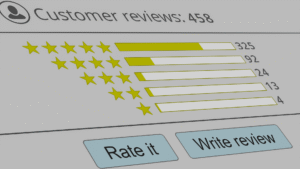The healthcare industry is a complex and ever-evolving sector, marked by constant advancements in technology, shifts in patient demographics, and evolving regulatory landscapes. These changes present both challenges and opportunities for healthcare marketers. As they strive to connect with patients and other stakeholders, they must navigate a unique set of obstacles, while also capitalizing on emerging trends and opportunities. This article will delve into the various challenges, opportunities, and strategic considerations in healthcare marketing, providing insights on how marketers can effectively navigate this dynamic environment.
Healthcare Marketing: Identifying Challenges and Potential Solutions
The first challenge in healthcare marketing is the complexity of the healthcare system itself. This complexity is fueled by a multitude of factors, including the diversity of stakeholders, the intricate nature of healthcare services, and the evolving regulatory landscape. Consequently, healthcare marketers must understand and cater to the needs of a wide array of stakeholders, ranging from patients and providers to policymakers and payers. To overcome this challenge, marketers can leverage data analytics to gain insights into the needs and preferences of these diverse stakeholders, enabling them to tailor their marketing strategies accordingly.
Another significant challenge in healthcare marketing is the need for privacy and confidentiality. Given the sensitive nature of health information, healthcare marketers must ensure that their marketing practices comply with privacy laws and regulations, such as the Health Insurance Portability and Accountability Act (HIPAA) in the US. This requires a careful balance between personalization and privacy, as marketers strive to deliver personalized marketing messages without compromising patient confidentiality. To address this challenge, marketers can employ privacy-preserving techniques, such as differential privacy, which allows them to use patient data for marketing purposes while ensuring the privacy of individual patients.
Lastly, the rapid pace of technological advancements in healthcare presents both a challenge and an opportunity for healthcare marketers. On one hand, these advancements can make it difficult for marketers to keep up with the latest trends and technologies. On the other hand, they can provide marketers with new tools and platforms for reaching and engaging with their target audiences. To capitalize on this opportunity, healthcare marketers can invest in ongoing education and training, ensuring that they are up-to-date with the latest technologies and best practices in healthcare marketing.
Harnessing Opportunities and Formulating Strategic Plans in Healthcare Marketing
Despite these challenges, the healthcare sector also presents numerous opportunities for marketers. One such opportunity is the rise of digital health technologies, such as telemedicine, wearables, and health apps. These technologies are reshaping the way healthcare services are delivered and consumed, providing new avenues for marketers to reach and engage with patients. To harness this opportunity, healthcare marketers can integrate digital health technologies into their marketing strategies, using these platforms to deliver personalized and timely marketing messages.
Another promising opportunity in healthcare marketing is the growing emphasis on patient-centered care. As healthcare organizations shift towards a more patient-centric model, they are increasingly seeking to engage patients in their healthcare decisions. This presents an opportunity for healthcare marketers to play a pivotal role in facilitating patient engagement, by providing patients with the information and tools they need to make informed decisions about their health. To leverage this opportunity, marketers can develop patient-centric marketing strategies, focusing on education and empowerment rather than just promotion.
Finally, strategic planning is crucial in healthcare marketing. Given the complexity and dynamism of the healthcare sector, marketers need to have a clear and well-defined marketing strategy. This strategy should be based on a thorough understanding of the market, including the needs and preferences of the target audience, the competitive landscape, and the regulatory environment. It should also be flexible enough to adapt to changing market conditions and trends. To develop an effective marketing strategy, healthcare marketers can use strategic planning tools and frameworks, such as SWOT analysis and PESTEL analysis, which can help them identify their strengths, weaknesses, opportunities, and threats, as well as the political, economic, social, technological, environmental, and legal factors affecting their market.
Healthcare marketing is a complex and challenging endeavor, marked by a unique set of challenges and opportunities. Healthcare marketers need to navigate the complexity of the healthcare system, ensure the privacy and confidentiality of health information, and keep up with rapid technological advancements. At the same time, they can harness the opportunities presented by digital health technologies and the shift towards patient-centered care, by integrating these trends into their marketing strategies. Ultimately, the success of healthcare marketing lies in strategic planning, which entails a thorough understanding of the market and a flexible approach to changing market conditions and trends. By addressing these challenges and capitalizing on these opportunities, healthcare marketers can effectively connect with their target audiences, driving engagement and ultimately improving health outcomes.
















